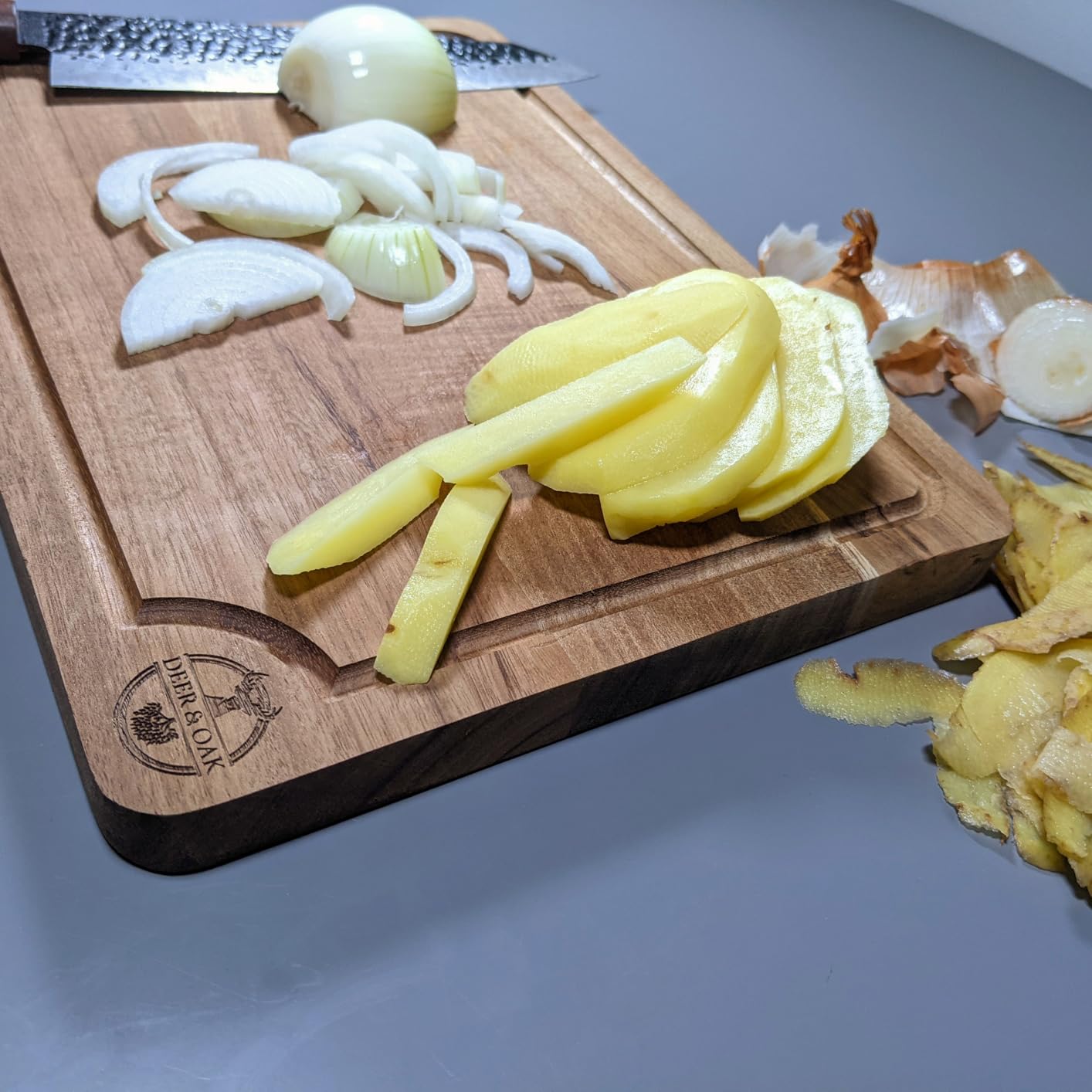
How the Carbonisation Process Makes Bamboo Cutting Boards Better
In an era where kitchen sustainability and performance go hand‑in‑hand, the humble chopping board is getting a serious upgrade. While many stay loyal to plastic boards out of habit or convenience, a growing number of home chefs are switching to bamboo. And among bamboo options, there’s a standout: the carbonised variant. In this article we’ll explore how the carbonisation process elevates bamboo cutting boards, while also recognising that regular bamboo remains a robust choice. Most importantly: both are far superior to plastic boards when it comes to hygiene, durability and eco‑friendly credentials.
What is a Bamboo Cutting Board?
Regular Bamboo Boards
Bamboo is actually a fast‑growing grass rather than a tree — making it one of the most renewable materials used in kitchenware. Regular bamboo boards are manufactured by laminating bamboo strips with food‑safe adhesives and finishing with oils or lacquers. They offer excellent durability, natural antibacterial characteristics and a modern aesthetic.
Carbonised Bamboo Boards
Carbonisation is a thermal‑treatment process applied to bamboo that involves heating under controlled conditions to change its colour (to a rich caramel or dark tone), reduce moisture content, and improve certain physical properties. This gives the board a more premium appearance and can deliver slightly improved stability and stain resistance.
How the Carbonisation Process Makes Bamboo Better
Enhanced Appearance + Colour Stability
The heat treatment gives carbonised bamboo that deep brown or chocolate tone which remains visually striking in modern kitchens. Its colour often holds better over time when compared to untreated bamboo.
Improved Moisture Resistance & Stability
By reducing the residual moisture and modifying the internal structure of the bamboo, carbonised boards tend to warp less, absorb fewer stains and perform more consistently in humid or high‑usage environments.
Durability & Long‑Term Performance
The carbonisation process can enhance durability — producing boards that resist knife grooves and surface wear more effectively than untreated ones. That said, high‑quality regular bamboo remains impressively durable itself.
Eco‑friendly Credentials
Both regular and carbonised bamboo start from the same rapidly renewable plant resource. However, carbonised bamboo requires extra processing (heat/thermal treatment) which may slightly increase manufacturing energy consumption. The key take‑away: you’re still far ahead of plastic.
Why Both Bamboo Options Outperform Plastic Boards
- Hygiene & bacteria resistance: Bamboo’s tighter grain and lower porosity reduce moisture retention and bacterial harbouring compared to plastic.
- Durability: Plastic boards easily show deep grooves from knives which become bacterial traps; bamboo resists such damage for longer.
- Sustainability: Plastic is petroleum‑based, non‑renewable and contributes to micro‑plastic pollution; bamboo regenerates quickly and leaves less environmental impact.
- Aesthetic & multi‑purpose: Many bamboo boards, especially carbonised ones, double as serving boards — something plastic rarely delivers with the same style or durability.
Choosing the Right Board for Your Kitchen
- Budget: Regular bamboo offers fantastic value.
- Visual style: Carbonised boards suit darker kitchens or a premium finish.
- Usage intensity: If you chop frequently or heavy tasks, carbonised may give greater resilience.
- Eco‑processing preferences: Regular bamboo involves fewer treatment steps.
- Quality assurance: Ensure adhesives are formaldehyde‑free and finishes are food‑safe.
Check out this carbonised bamboo board on Amazon UK or browse the full range at Deer & Oak.
Care & Maintenance Tips
- Always hand wash with mild soap and warm water. Avoid soaking.
- Dry immediately after washing and store upright for airflow.
- Oil periodically (food‑grade mineral oil) to maintain surface, especially on regular bamboo.
- Never place in a dishwasher — heat and moisture can warp both types of bamboo.
- Lightly sand with fine‑grit paper and re‑oil if moderate knife marks appear.
FAQs
Is carbonised bamboo safe for food preparation?
Yes — provided the board is made with food‑safe adhesives and finishes. The carbonisation itself is a thermal process and doesn’t inherently introduce harmful chemicals.
Do bamboo boards harbour bacteria?
Compared to plastic, bamboo boards (both regular and carbonised) tend to harbour fewer bacteria because of their lower porosity and natural properties. Proper cleaning and drying are essential.
Will bamboo boards dull my knives?
Bamboo is relatively hard and may be slightly more abrasive than some softer woods, so proper knife care (sharpening/honing) is still advised. The difference for typical home use is minimal.
Do I really need a carbonised board over regular bamboo?
It depends on your priorities. If you favour premium aesthetics, enhanced stability or heavier usage, carbonised might be worth the extra investment. But a well‑made regular bamboo board remains an excellent sustainable choice.
Why avoid plastic boards?
Plastic boards may look convenient but can develop deep grooves, trap bacteria, contribute to micro‑plastic pollution, and are less sustainable in the long run. Bamboo offers a stronger overall balance of performance and eco‑credentials.
Conclusion
The carbonisation process gives bamboo cutting boards a remarkable upgrade in appearance, stability and durability — while retaining the core benefits of renewable material and hygiene that make bamboo such a smart alternative to plastic. However, a high‑quality regular bamboo board remains a highly effective choice in its own right. Whether you opt for the richer tones of carbonised bamboo or the simpler finish of regular bamboo, the important decision is this: switch away from plastic — your kitchen, your knives and the planet will all thank you.
You can purchase Deer & Oak kitchenware through our website at deerandoak.co.uk or through TikTok Shop and Amazon UK at amazon.co.uk
